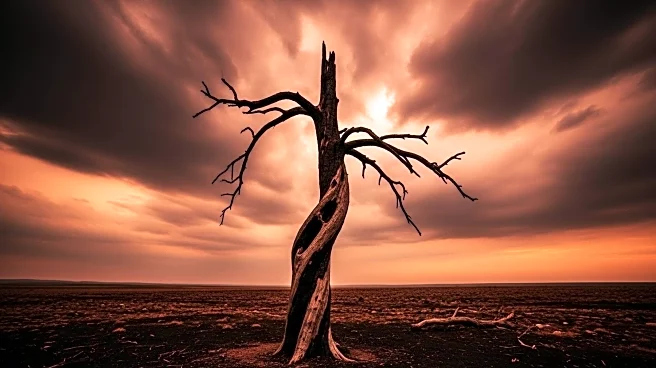What's Happening?
The film 'The Lost Bus,' directed by Paul Greengrass, is inspired by the 2018 Camp Fire, one of the deadliest wildfires in California's history. The movie focuses on the real-life heroics of school-bus driver Kevin McKay and school teacher Mary Ludwig, who rescued 22 children during the fire. Editor William Goldenberg, who worked on the film's post-production, shared his personal experience of being evacuated from his home in L.A. due to the Pacific Palisades fire, which added a layer of realism to the film's depiction of wildfires. The film's sound and visual effects teams used real radio communications and reference clips from the fire to enhance authenticity.
Why It's Important?
The film underscores the growing threat of wildfires in California and the broader implications of climate change. By portraying nature as the antagonist, 'The Lost Bus' highlights the unpredictable and destructive power of wildfires, which are becoming more frequent and severe. This narrative may influence public perception and policy discussions around climate change and disaster preparedness. The film also serves as a tribute to the bravery of individuals like McKay and Ludwig, emphasizing the human capacity for heroism in the face of natural disasters.
What's Next?
The film's release could spark conversations about the need for improved fire management and emergency response strategies. It may also lead to increased awareness and advocacy for climate change mitigation efforts. Stakeholders such as environmental groups, policymakers, and the public might use the film as a catalyst for action, pushing for legislative changes and community preparedness initiatives to better handle future wildfire threats.
Beyond the Headlines
The film's depiction of wildfires as a character rather than a backdrop challenges traditional disaster movie narratives, offering a fresh perspective on the relationship between humans and nature. This approach could inspire filmmakers to explore similar themes, potentially leading to a new genre of environmental storytelling that prioritizes realism and emotional impact over sensationalism.











